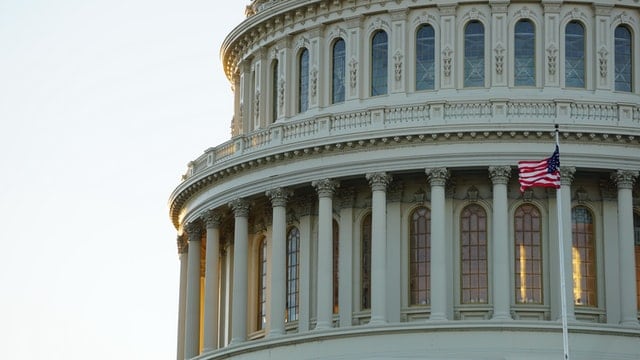
Jason Vazquez is a staff attorney at the International Brotherhood of Teamsters. He graduated from Harvard Law School in 2023. His writing on this blog reflects his personal views and should not be attributed to the IBT.
After months of grueling bipartisan negotiations, and a weekend of sluggish procedural advances, the Senate passed, in bipartisan fashion, a $1.2 trillion physical infrastructure package. The legislation, which will invest hundreds of billions of federal dollars in rebuilding roads, bridges, tunnels, airports, and railways, upgrading public transit systems, modernizing the power grid, and expanding broadband access to rural and low-income communities, represents the biggest federal infrastructure investment in decades. Senator Rob Portman (R-OH), a key negotiator, explained that the package “is going to improve the lives of all Americans,” and Secretary of Labor Marty Walsh tweeted that passage of the bill “is great news for workers, families and communities across the nation.” Indeed, labor groups and unions have expressed support for the legislation — the International Association of Machinists and Aerospace Workers (IAM), for instance, says the “historic infrastructure deal” will “uplift millions of working families through good unions jobs that offer decent wages and benefits.”
The legislation amounts to a significant political win for President Biden, appearing to vindicate his insistence on the campaign trail that, as president, he would prove uniquely capable of forging bipartisan consensus. Yet, the cost of bipartisanship was steep. Senate Democrats were forced to accept major concessions from Biden’s initial plan, sacrificing much of their ambitious efforts to pour enormous sums into public transit, clean energy, healthcare, and climate resiliency.
The legislative package will now be transmitted to the House, where it may encounter a rocky road. Many members of the House Progressive Caucus have threatened to withhold their support until the Senate passes the separate “big, bold” $3.5 trillion budget package that would significant augment the nation’s social safety net. “We’re not going forward with leaving people behind,” says Speaker of the House Nancy Pelosi (D-CA). Seeking to mollify such concerns, Senator Majority Leader Chuck Schumer (D-NY) assured those “concerned that this does not do enough on climate, for families, and making corporations and the rich pay their fair share,” that “we are moving on a second track, which will make a generational transformation in these areas.” With respect to that second track, the Senate early this morning approved, along party lines, a framework for the budget resolution, an important step in what will surely prove to be an arduous process to final enactment.
A report published Tuesday by the Economic Policy Institute reveals that CEO compensation has exploded by 1,300 percent since 1978, exceeding the earnings growth of even the top one-tenth of one percent of wage workers. From 2019 to 2020, in fact, as millions of U.S. workers found themselves furloughed during the pandemic, CEO pay rose nearly 20 percent. The economy “would suffer no harm,” the report concludes, “if CEOs were paid less (or taxed more).” CEO’s exorbitant salaries, and the stark disparity existing with respect to their pay and that of workers, are no secret. Nevertheless, EPI’s new report underscores the urgent need to redress income inequality, the root of so much social dysfunction.
In other pandemic-related news, Texas Governor Greg Abbott convened a special session of the Texas legislature last weekend in order to, according to the Texas Tribune, disable the state’s workers from accessing paid sick leave. The governor has requested legislation to “shield[ ] private employers and employees from political subdivision from rules, regulations, ordinances, and other actions … that conflict with federal or state law relating to any form of employment leave.” In other words, this item seeks to preempt local laws requiring employers in the state to furnish paid sick leave to their workforce, something more than four million Texans presently lack, and several major Texas cities, including Austin, Dallas, and San Antonio, recently attempted to implement.






Daily News & Commentary
Start your day with our roundup of the latest labor developments. See all
July 11
Regional director orders election without Board quorum; 9th Circuit pauses injunction on Executive Order; Driverless car legislation in Massachusetts
July 10
Wisconsin Supreme Court holds UW Health nurses are not covered by Wisconsin’s Labor Peace Act; a district judge denies the request to stay an injunction pending appeal; the NFLPA appeals an arbitration decision.
July 9
the Supreme Court allows Trump to proceed with mass firings; Secretary of Agriculture suggests Medicaid recipients replace deported migrant farmworkers; DHS ends TPS for Nicaragua and Honduras
July 8
In today’s news and commentary, Apple wins at the Fifth Circuit against the NLRB, Florida enacts a noncompete-friendly law, and complications with the No Tax on Tips in the Big Beautiful Bill. Apple won an appeal overturning a National Labor Relations Board (NLRB) decision that the company violated labor law by coercively questioning an employee […]
July 7
LA economy deals with fallout from ICE raids; a new appeal challenges the NCAA antitrust settlement; and the EPA places dissenting employees on leave.
July 6
Municipal workers in Philadelphia continue to strike; Zohran Mamdani collects union endorsements; UFCW grocery workers in California and Colorado reach tentative agreements.